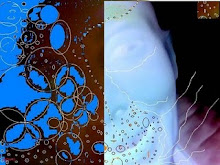THE KNIGHT OF CUPS
This card is traditionally entitled the Knight, but in some modern decks appears as the Prince. Traditionally, this card in this suit has pictured a homecoming -- portraying a return to his true heart's home after a long journey. Like the prodigal son, he may be returning after long estrangement from all he holds dear.
His taste for adventure is exhausted -- there is no more romanticizing of battles or travel in strange lands. Now he wants to go where he will be recognized, wanted and welcome -- where he doesn't have to fight at every turn. He has the attitude of one who has become older and wiser, the prodigal son.
The warrior returns an ambassador of peace. The traveler comes home.
When the Knight of Cups (in some decks, a Prince) is in this position, something or someone that was lost from your life may be returning. It could be an influence or a memento. It could also be a person coming back from a journey, one that separated from you long ago. A cup of wisdom, initiation or awakening will be presented to you.
Take a look at how you have been wandering down your chosen path.
DEATH
Let go of the past and move forward into a new phase of being.
This card portrays the action of winter on the landscape -- lush greenery is cut back, revealing the bones of the landscape. The season of dark and cold separates the annual plants, that live and die in one year, from the perennials, which can take refuge in their root systems until the following Spring, to sprout anew. As the scythe cuts the cords that link us to the past, it liberates us to go forward without fear, because we have nothing left to lose. We can see that everything pruned away is recycled for the fertility of the future, so that nothing is really ever lost, despite seasonal cycles of gain and loss.
The Death card is calling you to shed old identities in order to be able to express new ones, much like a snake shedding its skin. Go through this process of transformation willingly and voluntarily.
By cleaning up after the past and clearing away its residual effects, you make room for a higher manifestation to emerge. Think of this as a form of recycling in which you let go of attachments that would otherwise bind you to outworn thoughts and behaviors. You are turning a page in your life. Cast off the detritus of the past and look forward to the future with optimism.
THE HIEROPHANT
Help make the invisible visible.
The Hierophant in this position points to someone who is recognized and respected for the qualities that once made them seem strange to others. People like this see into the invisible spaces, communicate with animals, plants or the elements, and generally live in the world but are not bound to it.
Although an extra degree of sensitivity to your experience of life has at times seemed a setback, the Hierophant is now in a position to make it pay. This is a specialist, a person with a gift. With self-discipline, you can turn your unique point of view into a path of service.
the one who passes on the teachings.
This card can point to recurring themes in the challenges you have faced in your life -- and to opportunities that may yet present themselves. Can you think of any patterns which are returning to affect you now? If so, try to recall how you have reacted in the past. Perhaps you can see new potentials, while noticing the hidden pitfalls too. Can you imagine a different way of responding to the situation this time around?
The wisdom of this card can help you turn surprises into strengths, blind spots into windows of opportunity. Bring creativity and flexibility to the way you go about your way in the world. Your expanding capacity will become an asset and source of inspiration to all.
quarta-feira, 2 de setembro de 2009
Como fazer de seu jotacá uma cabana na floresta - tomo 18
"Nós, homens do conhecimento, não nos conhecemos; de nós mesmos somos desconhecidos - e não sem motivo. Nunca nos procuramos: como poderia acontecer que um dia nos encontrássemos? Com razão alguém disse: 'onde estiver teu tesouro, estará também teu coração.' Nosso tesouro está onde estão as colmeias do nosso conhecimento. Estamos sempre a caminho delas, sendo por natureza criaturas aladas e coletoras do mel do espírito, tendo no coração apenas um propósito - levar algo para 'casa'. Quanto ao mais da vida, as chamadas 'vivências', qual de nós pode levá-las a sério? Ou ter tempo para elas? Nas experiências presentes, receio, estamos sempre 'ausentes': nelas não temos nosso coração - para elas não temos ouvidos. Antes, como alguém divinamente disperso e imerso em si, a quem os sinos acabam de estrondear no ouvido as doze batidas do meio-dia, e súbito acorda e se pergunta 'o que foi que soou?', também nós por vezes abrimos depois os ouvidos e perguntamos, surpresos e perplexos inteiramente, 'o que foi que vivemos?'(...)"
Nietzsche, F. in A genealogia da moral
Nietzsche, F. in A genealogia da moral
Assinar:
Comentários (Atom)
